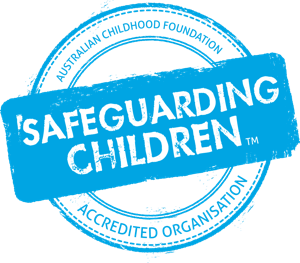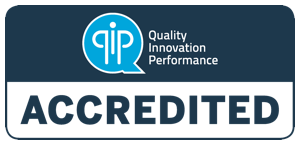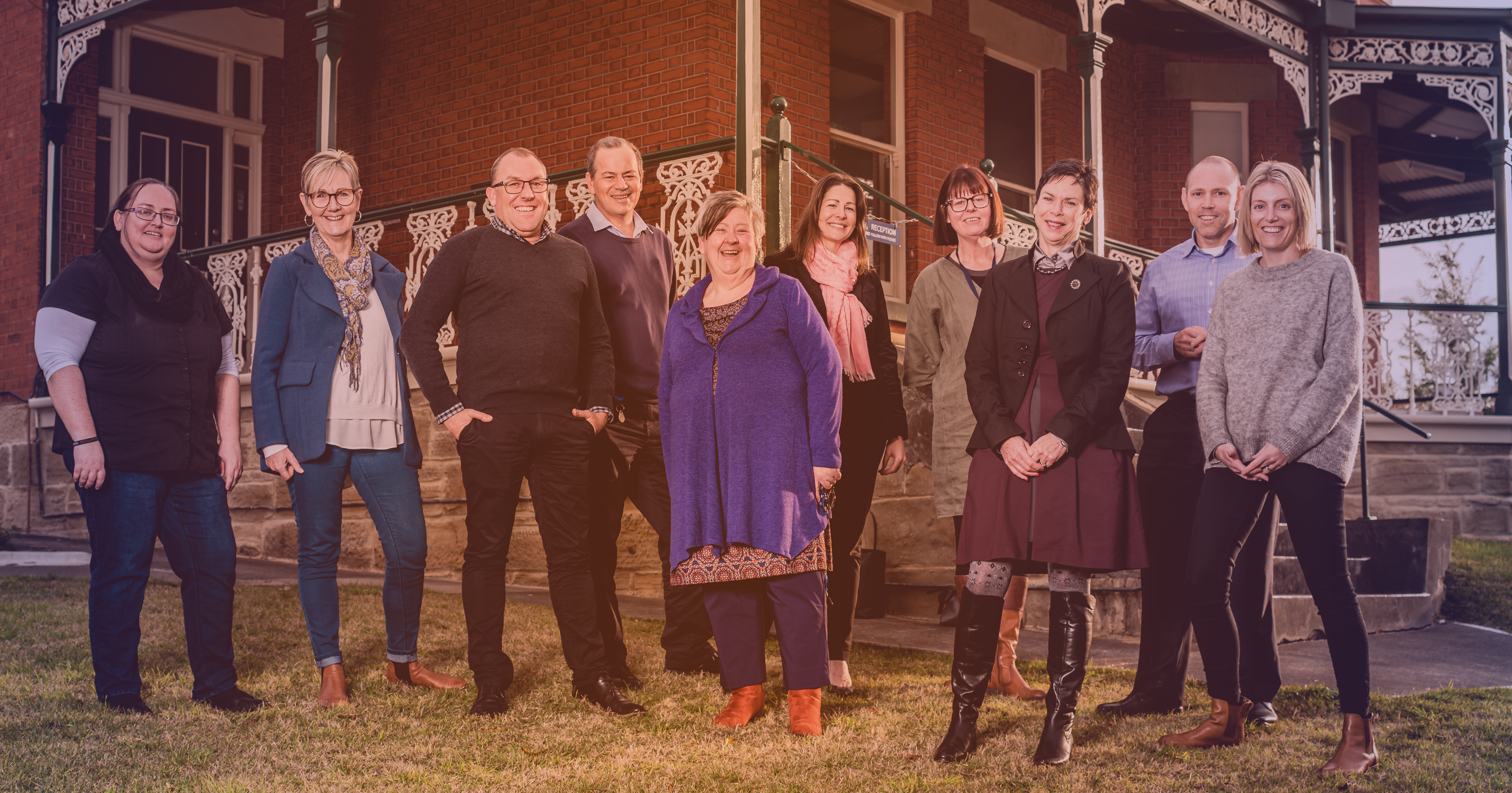June 2019 marked the end of the 2014-19 Strategic Plan. Collectively, the organisation has worked hard to accomplish the objectives set-out under each focus area; key achievements of note are below.
Activities in the fourth year of the plan have been a combination of continuing to refine work we have done over the past three years as well as implementing new projects to further improve our ability to meet the needs of our clients.
Priority One – Client Experience and Outcomes
To place people who access our services at the centre of all processes that affect how, when and why they get the assistance they need.
Key Achievements:
- The creation and streamlining of systems, processes and frameworks across the organisation has ensured that our services meet the needs of our clients. This has been a large focus of the CEO Leadership Group and Management Team over the past five years.
- The development and implementation of the RA Tas Excellence Framework and the subsequent establishment of the Clinical Governance and Practice Improvement Committee provided assurance that appropriate clinical governance mechanisms are in place and effective throughout the organisation. This has enabled the organisation to ensure excellence in service delivery, which leads to excellence in client outcomes and overall experience with the service. The solution orientated, and proactive role of the Clinical Governance and Practice Improvement Committee has allowed a regular forum for practice issues to be raised and an opportunity for innovative practice.
- The development and implementation of a whole of organisation response to supervision is has contributed to creating a client-centred service. The Amovita Supervision Model is now implemented across the organisation with all clinical staff receiving supervision; this service will also be rolled-out to include administrative and corporate service staff.
- RA Tas has introduced Universal Screening to all commencing clients, which has significantly enhanced our ability to identify potential risks and to identify appropriate mechanisms for dealing with risks as they arise.
- The creation of a Consumer Engagement Strategy and Action Plan for the organisation has established clear goals and objectives aimed to encourage further consumer and carer involvement in decision-making processes across the organisation.
- A dedicated Intake Worker for Family Dispute Resolution Services has been trialled in Hobart to improve the client experience and streamline processes. Post-trial evaluation has confirmed that both clients and staff greatly benefit from a dedicated Intake Officer FDR in FDR Services.
- A complete review of the Client Risk Management framework has been undertaken. The review resulted in improved evidence-based procedures and tools implemented across the organisation. Training for managers, senior practitioners and staff has been completed – reflected in the RA Tas Policy and Procedure Manual.
- A review of paper-based filing was undertaken, resulting in an E-Files Project that was initiated and completed across the organisation. Implementation of electronic client files is a huge achievement for the organisation and one that has directly impacted on clients to create positive outcomes for the client journey.
- RA Tas has achieved various accreditations across the 2014-19 Strategic Plan period. RA Tas was recognised as an accredited White Ribbon Workplace, achieved accreditation against the National Mental Health Standards and completed accreditation against the Safeguarding Children Framework.
- The organisation has consolidated the client evaluation processes to ensure data is collected and evaluated accordingly.
Priority Two – Community Profile and Reputation
To promote a deeper understanding of the services we offer and the contribution we can make to the community and to public debate.
Key Achievements:
- Over the 5-year strategic plan period RA Tas has Increased their media presence. Multiple opinion pieces addressing key advocacy areas (suicide prevention, White Ribbon and Family violence, Neighbour Day and Marriage Equality) have further positioned RA Tas as a leader in this space and increased brand recognition.
- A Marketing Strategy was developed and implemented, this also included the development of a new Social Media Strategy. The CEOLG Group developed and integrated a set of key messages for RA Tas. These have been designed to complement objectives set under the Marketing Strategy.
- The RA Tas website has been refined with a new website to set to launch late-2019.
- Welcome packs for clients accessing Post Separation Services have been developed to provide clients with information relating to service offering, rights and responsibilities and service fees.
- RA Tas extended service delivery of the Men’s Behaviour Change Program. This program was created in strong partnerships with Department of Justice and other service providers working in the family violence area, such as SHE, Australian Childhood Foundation, Community Corrections, Magistrates Court of Tasmania and Safe at Home.
- RA Tas Staff presented at conferences situated both locally and nationally; further raising RA Tas’ profile in this space.
Priority Three – Well Functioning Organisation
To continue to build a strong and flexible and efficient base for the organisation’s work.
Key Achievements:
- In October 2014, RA Tas engaged Kiandra IT to develop a Business Continuity Plan for our IT systems. A review of current infrastructure, processes and documentation was conducted, as well as workshops to analyse these processes. Each of these recommendations has been addressed and implemented.
- In 2014 a WHS Management Plan was developed to meet the greater needs of an expanding organisation. The WHS Management System included information on the responsibilities of the plan and communication via induction. The plan addresses risk management, WHS issue resolution and emergency management.
- Incident reporting, training, equipment and driving, specific hazard management, mental health, fatigue and employee assistance, WHS planning and quality review were also undertaken; under Key priority four.
- In 2015, RA Tas selected Tickit on Demand Governance and Risk Compliance software to provide the organisation with a centralised compliance, risk and incident management system.
- The Registration to Work with Vulnerable People Act 2013 came into force in Tasmania in July 2014. This registration aims to improve safeguards to help keep children safe from harm. Employees of RA Tas are now required to hold their Working with Children Registration. To effectively manage this a HR Compliance Register was developed and implemented across the organisation.
Priority Four – People and Culture
To encourage a culture of leadership and learning. To create an agile workforce to meet the future needs of the organisation and engage, recognise and reward staff in meaningful ways.
Key Achievements:
- The establishment of a People and Culture Team, with a Director of People and Culture, provided the team with access to strategic leadership. This also provided the team with support in areas such as workforce planning, organisational development, work, health and safety, change management, research and recognition, leadership capability and staff engagement.
- The development of Coordinator and Senior Practitioner roles clarified expectations and created consistently across the organisation. Each program area now has a Coordinator providing operational support to the Manager and a Senior Practitioner, providing service delivery and practice support.
- In 2015, Clare Street became the service delivery hub for the south of the state with all centre-based services now being delivered from the one central location. Corporate and other non-client facing services were moved to Montpelier Retreat in Battery Point to make room for additional service delivery staff. This co-location has resulted in improved links between the Family Relationship Centre, existing services and administrative staff; particularly within the Post Separation Services.
- In 2016, the Health and Wellbeing Champions Group was established to provide strategic leadership in the development, implementation and sustainability of health and wellbeing programs and strategies across the organisation. The group provide advice, support and assistance in the implementation of the program and assist in the promotion of a culture of health and wellbeing. The ‘Wellbeing Champions’ also monitor identified and emerging risks and advise on their prevention as well as recogniing and addressed barriers to healthy lifestyles within the workplace.
- To ensure RA Tas can continually attract the best quality staff, the organisation initiated and completed accreditation as an Employer of Choice; receiving accreditation in May 2016. It is both significant and an esteemed recognition demonstrating the range of initiatives RA Tas have on offer as well as our continuous efforts to provide staff with a supportive and inspiring work environment.
- RA Tas successfully renegotiated the organisation’s Enterprise Agreement in September 2016.
- An employee suggestion scheme was developed and implemented in 2016. The Bright Ideas Campaign is designed to recognise the tremendous potential in each of our staff members and has resulted in improvements to our workplace, and the way in which we work with our clients.
- The annual staff conference continues to attract and engage high levels of staff and participation from across the organisation. Around 100 staff attend each year.
Priority Five – Service Design and Business Development
To take up and create opportunities in new and emerging markets.
Key Achievements:
- In 2014 the RA Tas Children’s Contact Service reviewed service delivery procedures. An outcome of this review was the Improvement of the CCS case management model.
- Parenting Separately was reviewed in late 2014. Although the aims of the program were retained, significant changes were introduced to make the program more relevant to its clients. Access to education workshops within the program is now more flexible as well as an increase in available dates and times for education session attendance. These changes have led to significantly reduced waiting times for our clients. Clients using the program have found it to be flexible, engaging and highly relevant to their current parenting and communication challenges.
- The Aboriginal Cultural Connections Program was established. This provides a Women’s Healing Group, that group focuses on strengthening the physical, emotional and social wellbeing of women in Aboriginal communities.
- The Elder Relationship Service Mediation & Counselling Pilot began in 2016. The pilot aimed to assist older Tasmanians and their families to navigate and resolve family conflict.
- Since 2014, RA Tas has investigated numerous opportunities to diversify our funding base. New relationships with Primary Health Tasmania and the Department of Justice have increased our offering in the community and diversified our income stream.
- Delivering EAP services continues to bring diversity to our revenue stream. We have several long-term clients in this space with contracts consistently being renewed on an annual basis.
- The CEO Leadership Group has initiated discussions and planning for a fundraising strategy, intending to place greater focus on fundraising from the SPEAK UP! Stay ChatTY program. It is anticipated that further development in this area will be a strong focus for the coming years.
- RA Tas secured a grant from TasCOSS to undertake the RA Tas NDIS Opportunities Report. Recommendations from this report have subsequently been actioned.




